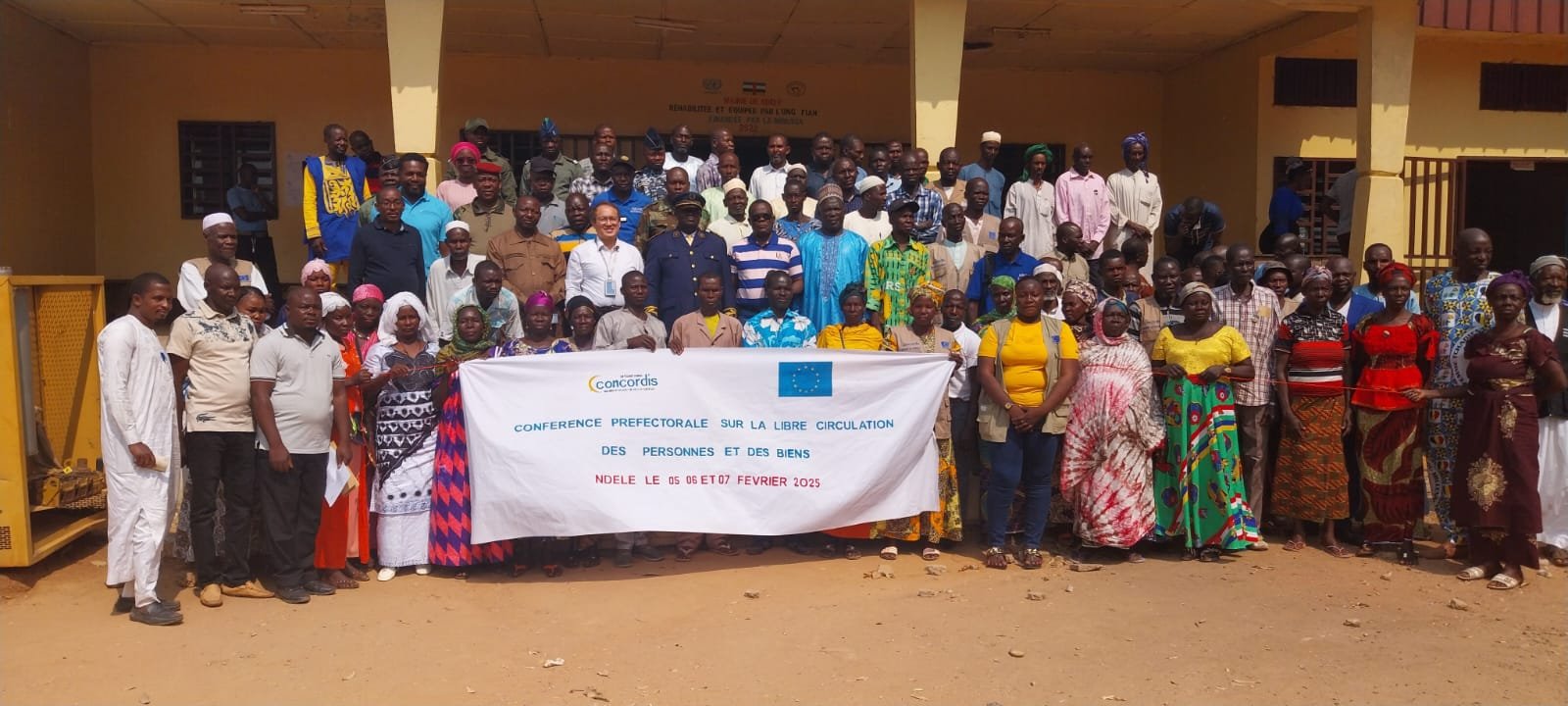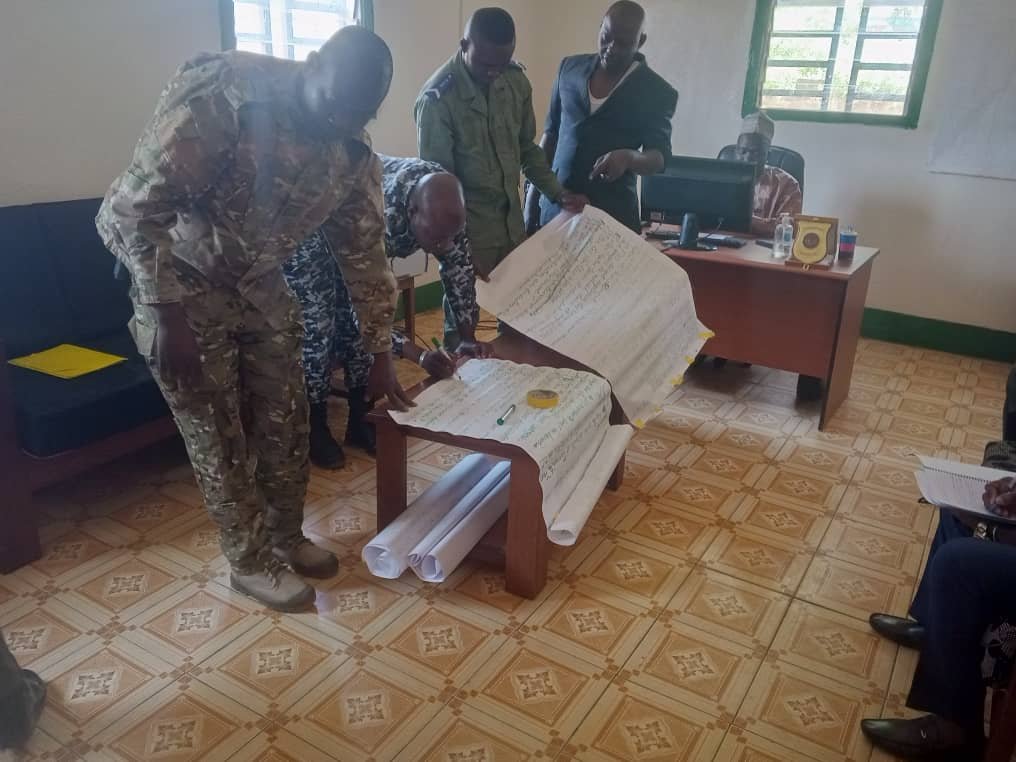How peacebuilding supports free movement of people, goods and livestock in northern CAR… and why that’s important.
What are the consequences of not being able to move around freely because of violence on the roads?
People can’t get to market to buy and sell goods because it’s dangerous... so it’s a struggle to feed families.
Food becomes scarce so prices at the markets go up... so it’s a struggle to feed families.
There are more armed men around, traders pass on their losses and the cost of protecting goods to their customers, prices go up... so it’s a struggle to feed families.
Accessing markets in the Central African Republic (CAR).
In the villages of Bamingui-Bangoran in northern CAR, agriculture and small-scale livestock farming are the main livelihoods. People then supplement their income by growing cash crops of peanuts and millet/sorghum, as well as by hunting, beekeeping and processing shea butter into oil.
Once they have goods to sell, they need access to markets. Roads are crucial, both for local trade and also for bringing in goods from neighbouring Chad.
Yet the roads are dangerous, both due to their poor condition and the presence of armed groups and bandits, who prey on traders. Worse still is the threat from rogue soldiers, who use their position at checkpoints to extort money and livestock.
The free movement of people, goods and livestock is very important.
If people can move freely and safely, this generates opportunities for intercommunity trade. This, in turn, strengthens stability and social cohesion because it improves livelihoods and builds relationships of trust between different groups, including herder and farmer groups. People are better off as a result of their peaceful interactions with other communities.
Conversely, when members of the security services abuse their power though corruption, racketeering and extortion of road users, they undermine the government's efforts to strengthen and restore authority of the State. They become less effective at combatting banditism, when they themselves behave like bandits. And by restricting access to markets, they undermine economic resilience, food security and the social cohesion between herders and farmers that comes from intercommunity trade.
The Concordis team proposed a solution for Bamingui-Bangoran: a conference, chaired by the Prefect, to find a solution to the barriers to free movement, and to restore socio-economic stability to the communities.
One hundred and ten participants gathered for three days at the Dar-El-Kouti Town Hall in Ndele, the regional capital.
Many people have an interest in improving the condition of the roads. The conference brought together the local authorities, commanders from the security and defence forces and UN peacekeepers, alongside village leaders, herders, farmers, traders and motorcycle taxi drivers. There were youth, women, refugees and people with disabilities present, all with an interest in resolving these issues, and all able to articulate their needs and fears.
Change can now happen.
The conference came up with a Code of Conduct for the free movement of people, goods and livestock, and then made a plan to disseminate that widely.
The security services expressed eagerness to put their own house in order. Not only was the Code of Conduct nailed up at every checkpoint, they also asked to use Concordis early warning system as a whistle-blowing tool, to notify the authorities any time a soldier abused his position.
A local committee was established to monitor the implementation of the Code. The first thing they did was to train 130 police officers, gendarmes and soldiers of the Central African Armed Forces.
They are now running a campaign to popularise the Code of Conduct, broadcasting on Ndele community radio and putting up signs along the roads. The community radio director says there are people calling to express their appreciation of the initiative.
Which means that getting goods to market, at a reasonable price, in safety, and with customers there to buy it, is all much more achievable… so it’s not such a struggle to feed families.
This is what the Freedom of Movement initiative says:




